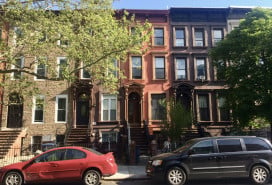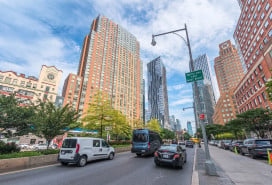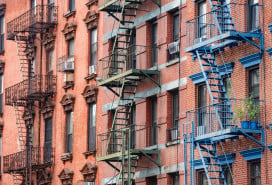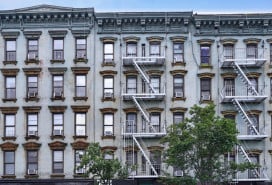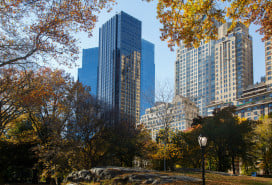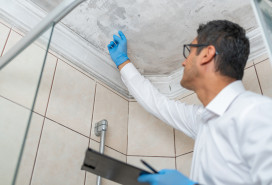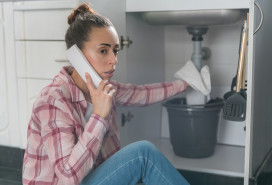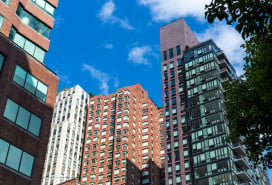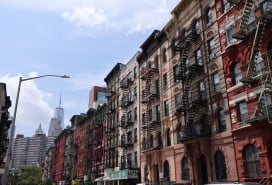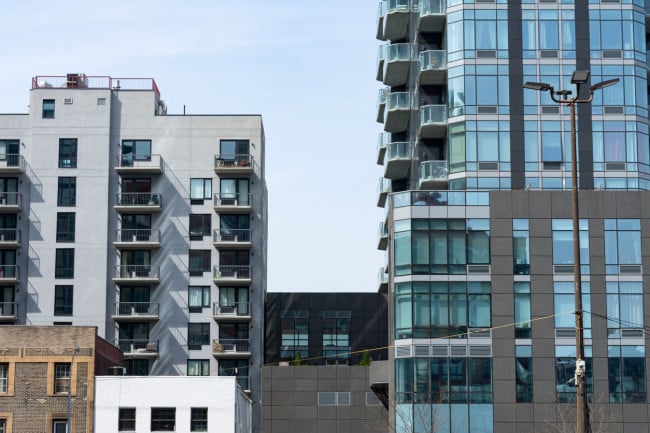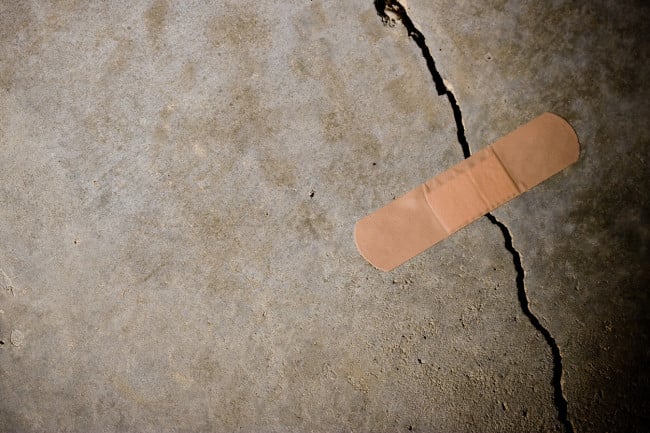A home-inspection checklist if you're buying a NYC condo or co-op
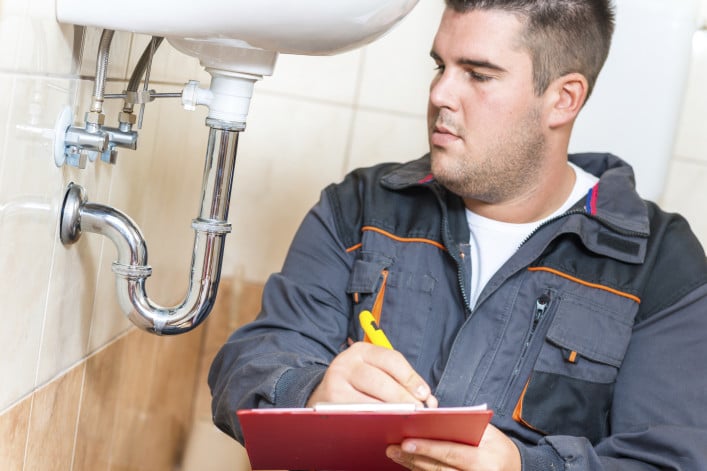
Think home inspections are for people buying houses in the suburbs? Think again. Buyers of New York City apartments also request inspections, something that’s become more prevalent in recent years.
In some cases, it’s because the buyers are from out of state and used to that part of the process. Or it’s because they want the peace of mind that comes from a professional home inspection.
“While it might be seen like you’re being ultra-conservative, it is really a small price to pay for extra peace of mind,” says closing attorney Adam Stone of The Stone Law Firm.
Then there’s the fear factor fed by news reports like the terrifying collapse of a condo building in Surfside, Florida, and footage of massive storm flooding in NYC. Many buyers would rather be safe than sorry.
“More buyers are getting inspections done, especially in the $2 million-and-up price range,” Stone says.
[Editor's note: A previous version of this post was published in March 2016. We are presenting it again with updated information for September 2021.]
Inspectors say their business is booming.
“Years ago, it was rare for me to be asked to do a condo or co-op inspection," but in recent years, the number of requests have quadrupled, says Kenneth Lee, owner of Brooklyn-based Green Apple Home Inspection.
If you're buying a NYC apartment, there are basically three main types of situations that generally warrant a professional home inspection, says Stone. (However, there may be other factors as well that warrant an inspection.)
The first scenario is if your prospective apartment is in a small building.
“These buildings don’t usually have much cash available to fund a major repair. And they usually have low maintenance fees and assess separately for a repair. If it’s a five-unit building and the roof needs $100,000 of repairs, you know where the building is going to come to look for $20,000 of it,” Stone says.
Second, if there’s a particular condition that could potentially cause hard-to-detect problems—such as an apartment on the top floor that is therefore more prone to leaks—you'll want to get the place inspected.
It's also smart to get an inspection if the apartment is in a new development built by a little-known or first-time developer, Stone says.
Inspections must be done before a contract is signed. Expect to pay around $500-750 for a two-bedroom, one-bath apartment inspection.
Here are eight things your inspector should look out for:
1. Water infiltration from the outside
Moisture entering from the roof, terrace, and windows is most common. In below ground level apartments, moisture can enter from ground water as a result of poor drainage. Terraces need to be checked to be sure they’re pitched properly.
2. Plumbing leaks
An inspection should involve an electronic moisture meter and a thermal imaging camera to detect hard-to-find leaks. All sinks, tubs, showers, toilets, washing machines and dishwashers need to be operated and checked for leakage.
This includes supply and waste piping as well as faucet valve systems. Dishwasher door seals are prone to leaks and need to be checked, too.
“Strange as it may seem, these problems can be more prevalent in new construction than in older established buildings,” says Tom Walsh, owner of All Aspects Housing Inspections.
Check to see how the toilet has been installed, too. “To install a toilet properly, you need to place it on a bed of wet plaster of paris. If it’s not done that way, there will probably be a leak," Walsh says.
For a graphic look at the kinds of leaks he’s found, take a look at Walsh’s Hall of Shame.
3. Windows
Double hung windows should be examined to make sure that they stay up on their own, as many newer replacement windows are designed with a “spiral balance system.”
This style replaces the old string or chain and weight counter-balance systems.
“Many times, these windows will not stay up when opened. This can be a safety issue, especially for children,” Walsh says.
4. Electric wiring
Is the electrical capacity of the building/apartment up to the demands of 21st century technology? If the building was built 75 years ago, when most people had a radio and a few light bulbs, probably not, unless it's been rewired by a previous owner.
Watch out for do-it-yourself wiring projects in older buildings.
But new buildings have problems too. Lee tells about an inspection of "a gorgeous million-dollar-plus condo in Brooklyn where I discovered that the entire left hand side of the electrical panel had been on fire.”
Your inspector should also check the GFI (ground fault interrupter) outlets that are installed in locations where there’s a risk of the power source coming into contact with moisture—something to save you if you drop your hair dryer into a sink full of water. A GFI breaker that will not reset indicates that the protection it is meant to provide has been compromised.
5. Heating
Most older apartments have centrally controlled steam heat with no thermostat to adjust temperatures in individual apartments. In order to lower the heat, residents may disable one or more of their radiators “using other than standard means,” which would mean turning it off by hand, according to Walsh.
“Over-tightening the radiator supply valve and damaging it and capping the radiator or baseboard supply pipe are the two methods I see the most. Reversing some of these methods can be expensive,” he says.
6. Flooring
Your inspector should pay close attention to the flooring—especially if it’s hardwood—to make sure that there are no excessive gaps and/or buckling and that the installation is in line with industry standards.
Areas where the wood flooring has been patched may indicate a leak, such as near a radiator.
7. Installation of appliances
Lee says he's noticed that in some of the newer apartments with high-end counter tops and appliances, the dishwashers aren’t properly anchored.
“It could be that the installer is afraid of damaging such expensive equipment," he says. The results: Shake, rattle and roll when the appliance is operated that eventually can cause damage.
8. Common areas
Here’s where it gets tricky. Building management is not required to allow a home inspector to take a look at the roof, boiler room, or the building’s electrical system. If a large building doesn’t let you look, that’s not a big worry but “when a 10-unit building says no, I’m suspicious," Lee says.
“The question of access to the common areas should be sorted out before the inspector arrives on site,” he adds.
Where to find an inspector
To avoid a potential conflict of interest, rather than hire an inspector recommended by your broker, ask for referrals from friends, or search through the American Society of Home Inspectors and the National Association of Home Inspectors.
Lee recommends choosing an inspector "who is licensed by the state, of course, but also one who has Errors and Omissions Insurance in addition to General Liability—that proves just how serious the inspector really is."
And when hiring an inspector, make sure yours doesn't have too much skin in the game.
"The best thing is to find a recommendation from a friend or from your attorney," Walsh says. An inspector recommended by the seller's agent could present a conflict of interest, he says.
You Might Also Like

